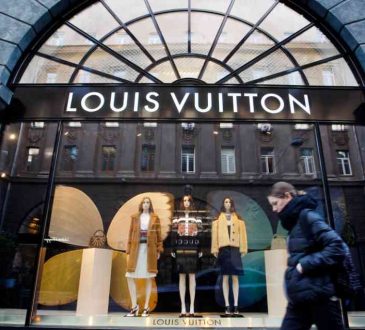Emerging Superclans From Emerging Europe

The Best of Times
The past 30 years have been a golden age of global prosperity (although, to be fair, the same can be said about inequality).
As the Third Wave of Globalization physically spread global value chains across the world, the Third Industrial Revolution digitally interconnected that world into a more or less cohesive whole. Indeed, returns from this global boom have not been spread equally, and it is unfair to dismiss concerns that some have been left relatively worse off. But it enabled millions to use the sweat of their brow and years of schooling to pull themselves out of poverty into the global middle class. Overall, the world is better off and very much so: The World Trade Organization estimated that global GDP doubled since the early 1990s.
After the excitement of the early 1990s, one of the most overlooked areas of growth has been the wider East European region. The most optimistic scenarios some had for the region may not have materialised as quickly as initially thought, but the region has been steadily growing throughout this time: McKinsey estimates the Central and East European region (CEE) alone grew 115% between 2004 and 2019, primarily by utilising a fairly well educated and relatively young workforce to integrate themselves into European supply chains and become export-led economies. In per capita terms, this region alone has seen a 114% growth in GDP between 1996 and 2017, even experiencing an average rate of growth of 4.8% between 2000 and 2008 – perhaps not as fast as China’s 10% or India’s 5.6%, but well ahead of the United States’ 1% or the rest of the European Union’s 1.4%.
The shift created by this growth is perhaps best illustrated by the star pupil of the bunch, Poland. Growing at an average of 4% per year, in just 15 years it went from middle income status to high income status. Moreover, it did so while avoiding the usual dislocations: an increase in inequality and an over-reliance on price-sensitive exports. Indeed, the World Bank estimates its Gini coefficient actually decreased from 0.351 in 2005 to 0.343 in 2014, while a third of its growth comes from increases in total factor productivity.
On the other pole of the region, another great success story: Turkey. It may be making headlines for all of the wrong reasons these days but what is felt in the daily lives of people is the economy and that has been growing fast. Per capita GDP has trebled in the past 15 years, and industrialisation helped move the number of people below the poverty line, set at USD 5 at 2011 PPP, from 37% in 2002 to 9% in 2017. As the World Bank states: that is ‘a feat achieved by only a handful of countries.’
Farther on, in Georgia, we can see a country which has risen from a tumultuous civil war, which lost close to 65% of its GDP during its civil war in the early 1990s, to grow at an average of 5.4% over the past two decades, and 4.5% per year over the past decade. In 2019 this sustained growth led it to be officially categorised by the World Bank as an upper middle-income country.
The Best of Businesses
Needless to say, this period of growth created its own great fortunes.
These aren’t idle numbers: the who and the how deserve close scrutiny because these are the families whose opinion carry enough currency in policy circles to matter. Directly or indirectly, those who have risen to the top in these past 30 years will play a significant part in setting the tone for the next 30, particularly so since the main engines of growth during these times are now sputtering, giving way to the need for change and reform.
To this end, a taxonomy is useful.
Poland is noted for its richest and best connected also being highly diversified and relatively recent arrivals, having made their fortunes in the post-Soviet context. The Kulczyk family perhaps being the most illustrative example: ranging from pension management to crude oil refining, the second generation moved into media and investments, creating one of the most diversified family networks.
At the other pole, many of Turkey’s richest families can often trace their fortunes back a few generations, the Sabanci or Koc families being household names, and still retain significant portions of their assets in the primary sector or property. Meanwhile, the new generation of the wealthy, such as Farok Eczacibasi or Erman Illicak, often come from a technical background, having made their fortunes in the past 30 years’ economic expansion and remain particularly invested in heavy industry, chemicals and construction – and thus with the more widely distributed growth of the Erdogran era in Turkish politics.
Culturally and geographically in between, Romania’s richest families reflect a mixture of what is observed in Poland and Turkey. Like Poland, most are recent and rose in the post-Soviet context. Yet, like Turkey, they tend to be specialised in the growth industries of an emerging market, namely construction and the provision of middle-income trappings: telecoms, retail banking and IT.
Time for Change
The role of these families is pivotal. They act not only as centres of influence but also by example. Having the capital and expertise to seize new opportunities, they are first in line for new opportunities and spearhead their domestic economy’s adaptations. With rapidly ageing populations, experiencing significant brain drain and often facing a fairly grim long-term fiscal outlook, Eastern Europe’s growth engines are coming to an end, as is the 30-year window of catch-up growth. The need for improving total factor productivity, digitalisation and, not least, industrial development in the new growth areas of the 21st century, is thus self-evident. These are the families best placed to set the course both for their businesses’ future growth as well as their countries’ economies in the next three decades.
Written by Radu Magdin. Have you read?
Best Hospitality And Hotel Management Schools In The World For 2021.
Best Fashion Schools In The World For 2021.
Best Business Schools In The World For 2021.
Best Medical Schools In The World For 2021.
Ways to Grow Your Revenue by Expanding Sales and Visibility on Amazon.
Add CEOWORLD magazine to your Google News feed.
Follow CEOWORLD magazine headlines on: Google News, LinkedIn, Twitter, and Facebook.
This report/news/ranking/statistics has been prepared only for general guidance on matters of interest and does not constitute professional advice. You should not act upon the information contained in this publication without obtaining specific professional advice. No representation or warranty (express or implied) is given as to the accuracy or completeness of the information contained in this publication, and, to the extent permitted by law, CEOWORLD magazine does not accept or assume any liability, responsibility or duty of care for any consequences of you or anyone else acting, or refraining to act, in reliance on the information contained in this publication or for any decision based on it.
Copyright 2024 The CEOWORLD magazine. All rights reserved. This material (and any extract from it) must not be copied, redistributed or placed on any website, without CEOWORLD magazine' prior written consent. For media queries, please contact: info@ceoworld.biz
SUBSCRIBE NEWSLETTER








